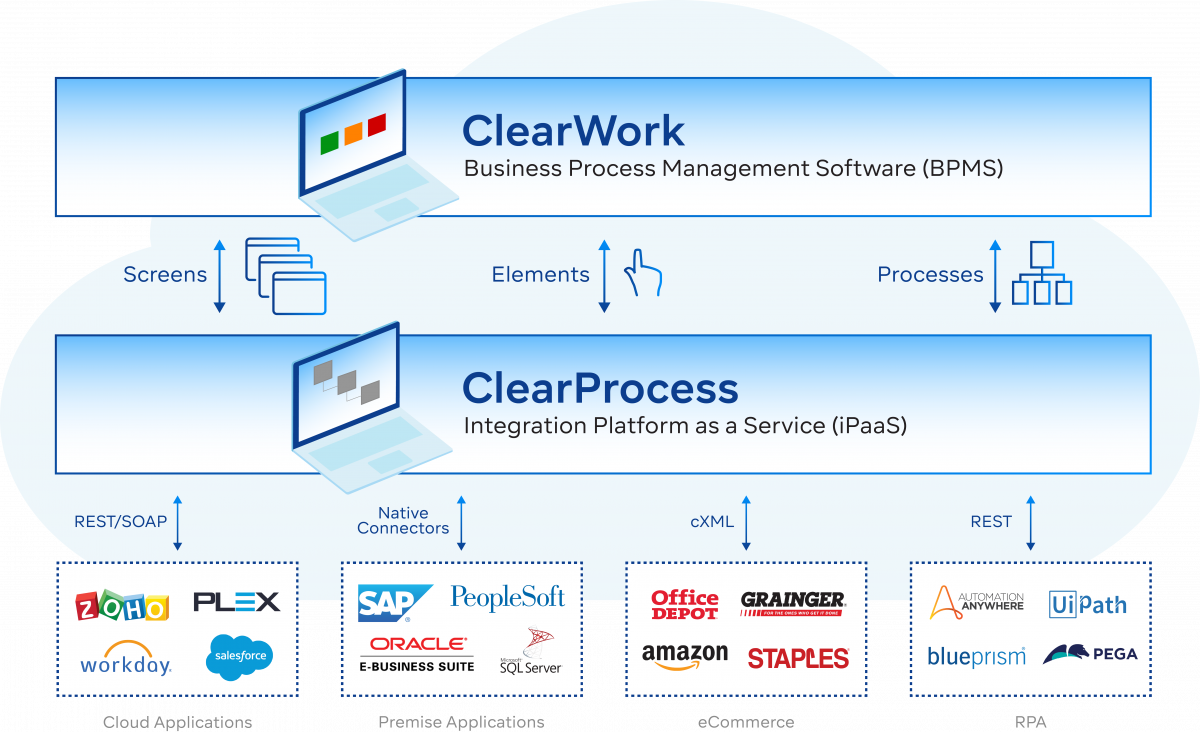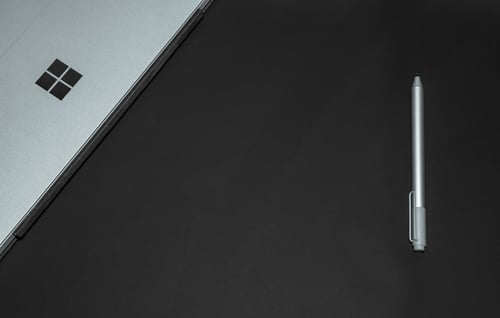ERP systems vendors don’t make a lot of noise about collaborating with their competitors. Quite the opposite, they tend to focus on how they are better than the competition. But the truth is that they often work together for a very simple reason—no one (not even multi-billion dollar companies) can create functionality for every business process.
Therefore, it is not unusual to see multi-tier ERP implementations, which means that companies use two or more ERP systems from different vendors. Not to mention all the other software solutions companies use, such as CRM, HR, PLM, and so on.

Why does Microsoft need Clear Software?
At first sight, it may not be obvious why Microsoft acquired Clear Software. Microsoft has at least two products in G2’s iPaaS category, which is Clear Software’s primary focus. However, what matters most to Microsoft is the business process management and orchestration product solution, ClearWork.
This is critical nowadays because technical integrations are not sufficient anymore, considering that companies use more and more software products. Therefore, it is essential that companies also manage processes and workflows across multiple ERP solutions and all other software products used by the company.
Also, ERP solutions provided by SAP and Oracle have complex processes since they were created for midmarket and enterprise companies. Interestingly enough, no Microsoft product is included in the list of platforms that Clear Software focuses on. Now that Microsoft owns Clear Software, the vendor will most likely improve integrations between its products and SAP and Oracle solutions. At the same time, Clear Software doesn’t focus exclusively on large vendors and provides integrations with smaller software sellers such as Plex and Zoho.

Source: Clear Software
Finally, Clear Software may theoretically help with integration and process orchestration between any software solutions in any industry. Still, they seem to focus on a few sectors such as call center, insurance, and oil and gas. As a result, some of the main solutions they offer are geared towards cloud call centers, procure to pay, and order to cash.
If you can’t beat them, integrate with them
The coopetition (working with competitors) trend in the ERP market is here to stay and benefits everyone—vendors can focus on what they do best instead of developing new products, and buyers can better integrate multiple systems.
Matthew Miller, a G2 analyst focused on AI, automation, and analytics, notes that integrations are key in the broader business process management (BPM) software space. For example, the top product on the G2 grid for BPM currently, Pipefy, has over 100 integrations, helping users streamline their work and connect their various systems. Integrations are the connective tissue that allows a business to survive, and even thrive if utilized effectively and efficiently.
We expect to see more acquisitions of integration platforms by enterprise vendors or ERP consulting and implementation services providers such as Capgemini, Wipro, Accenture, or Deloitte.



 by Gabriel Gheorghiu
by Gabriel Gheorghiu
 by Gabriel Gheorghiu
by Gabriel Gheorghiu
 by Gabriel Gheorghiu
by Gabriel Gheorghiu